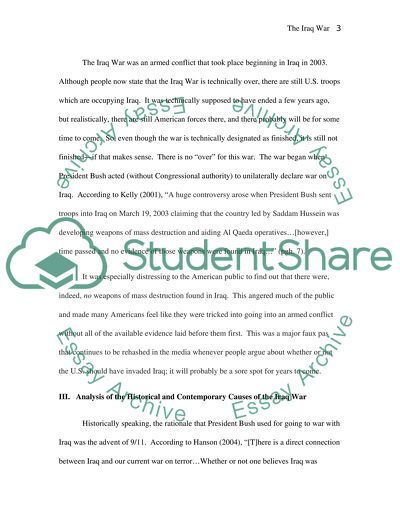Cite this document
(“The Iraq War Research Paper Example | Topics and Well Written Essays - 2000 words”, n.d.)
Retrieved from https://studentshare.org/history/1430345-iraq-war
Retrieved from https://studentshare.org/history/1430345-iraq-war
(The Iraq War Research Paper Example | Topics and Well Written Essays - 2000 Words)
https://studentshare.org/history/1430345-iraq-war.
https://studentshare.org/history/1430345-iraq-war.
“The Iraq War Research Paper Example | Topics and Well Written Essays - 2000 Words”, n.d. https://studentshare.org/history/1430345-iraq-war.


